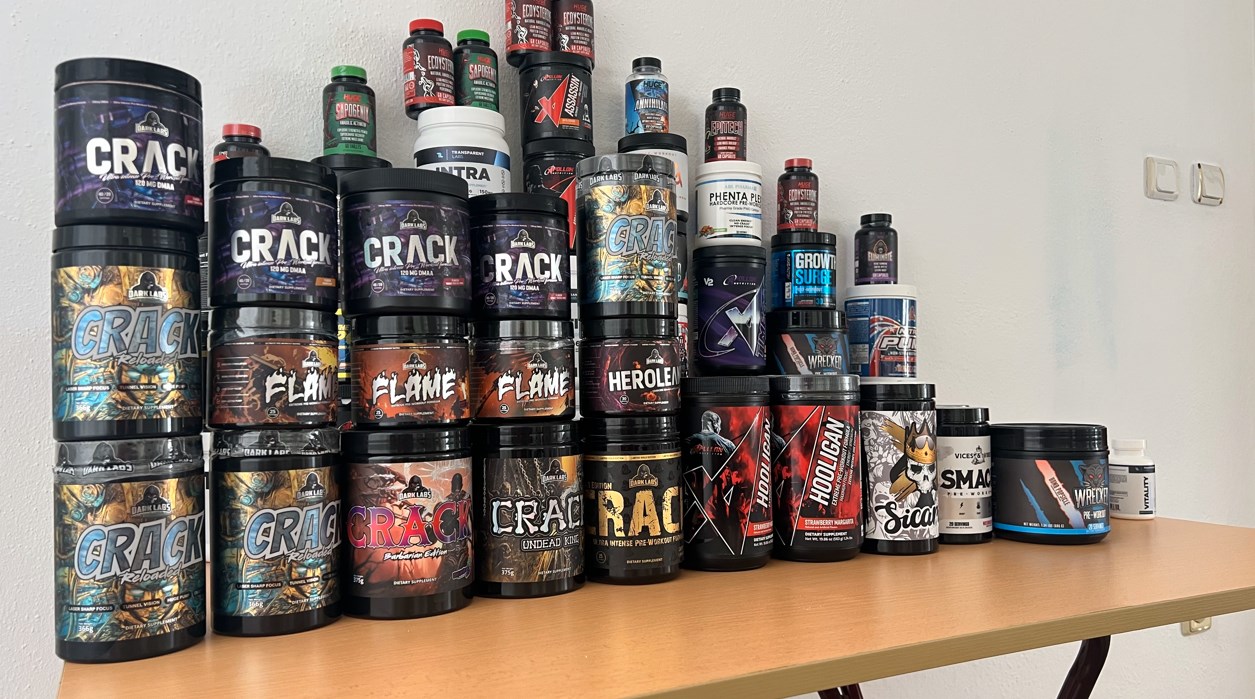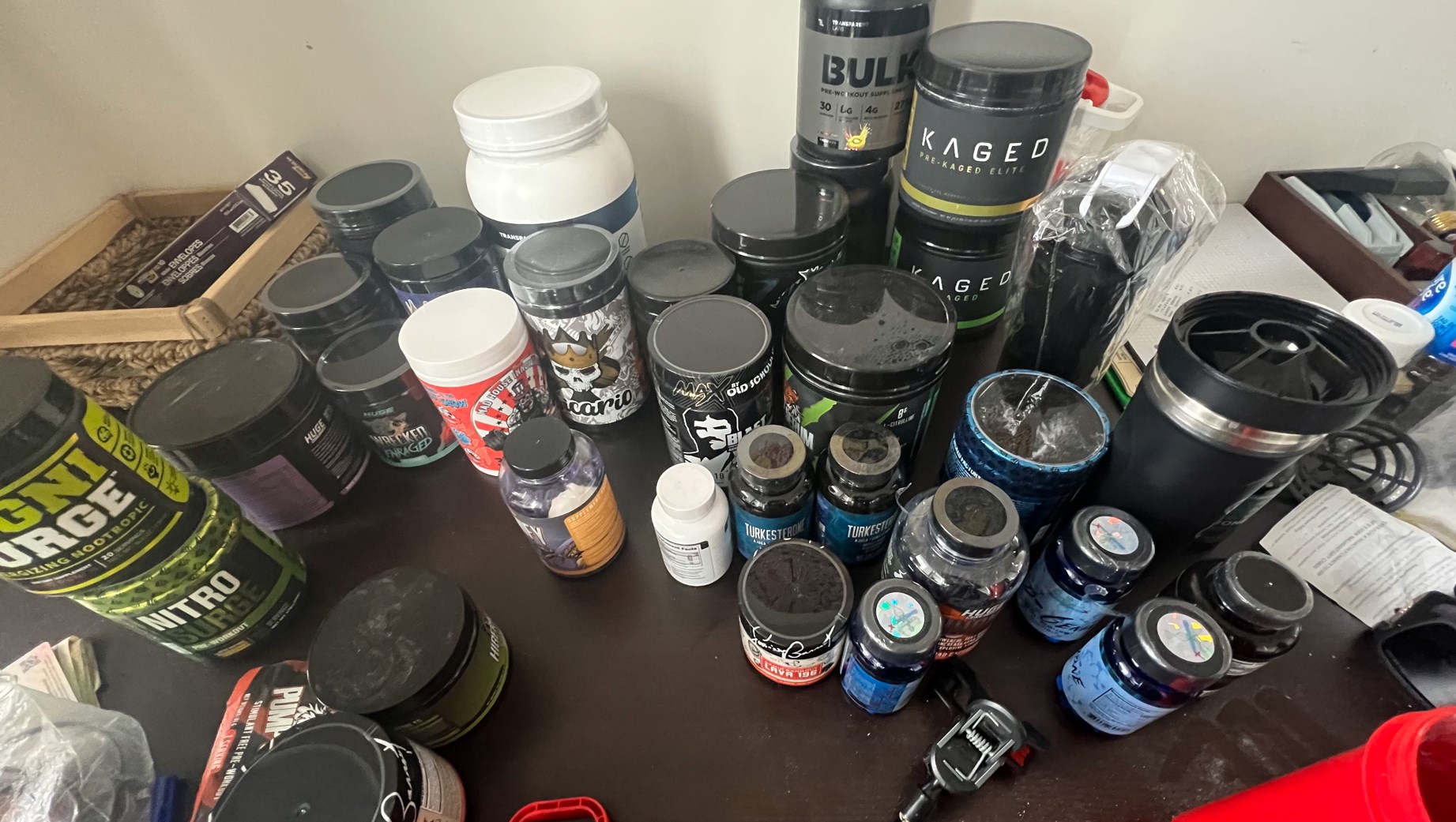
You've just finished a grueling workout, and you're feeling on top of the world.
You've been consistent, pushing your limits, and you've started using a pre-workout supplement to maximize your performance.
But then, you notice something strange.
Your weight... it's creeping up.
Could your pre-workout be the culprit?
We're going to dive deep into this question:
"Will pre-workout make me gain weight?"
It's a legitimate question and it's time we put some solid answers to it.
In this comprehensive guide, we'll explore what pre-workout supplements are, their key ingredients, and how they can potentially affect your weight.
We'll also delve into the benefits and potential drawbacks of these popular supplements.
Plus, I'll share some tips on how to make the most of your pre-workout supplement without sabotaging your physique goals.
So, if you're ready to get the lowdown on pre-workouts and weight gain, let's dive in!
Pre-workout supplements are designed to boost your energy and athletic performance during a workout.
They usually come in the form of powders that you mix with water and drink before hitting the gym.
The goal is to increase your stamina, strength, and endurance, helping you get the most out of your exercise routine. [1]
Most pre-workout supplements contain a blend of ingredients designed to enhance performance.
These often include caffeine for energy, amino acids for muscle recovery, and creatine for strength.
Some also contain carbohydrates for added fuel and electrolytes for hydration.
They usually contain a cocktail of various ingredients, each with a specific purpose aimed at enhancing your workout performance.
Here's a deeper dive into some of the key ingredients commonly found in these supplements.
This is perhaps the most common ingredient in pre-workout supplements.
Caffeine is a powerful stimulant that can help increase alertness and delay fatigue. [2]
It works by blocking the effects of adenosine, a brain chemical that makes you feel tired.
At the same time, it triggers the release of adrenaline, the "fight-or-flight" hormone associated with increased energy.
However, it's important to keep in mind that too much caffeine can lead to jitteriness, insomnia, and other side effects.
Creatine is a substance found naturally in muscle cells.
It helps your muscles produce energy during heavy lifting or high-intensity exercise.
Taking a creatine supplement can increase your muscle creatine stores, allowing you to perform better during workouts and leading to muscle gains over time. [3]
It's also worth noting that while creatine can cause water retention, leading to weight gain, this is usually short-term and not related to fat gain.
This is an amino acid that helps fight muscle fatigue.
When you exercise, acid builds up in your muscles, causing you to feel tired.
Beta-alanine works by producing a substance called carnosine, which reduces this acidity in your muscles, helping you to perform longer.
Branched-chain amino acids (BCAAs) are a group of three essential amino acids: leucine, isoleucine, and valine.
They are called essential because your body can't produce them, so you must get them from your diet.
BCAAs are crucial for muscle growth and recovery.
These are substances that your body can convert into nitric oxide, a molecule that improves blood flow.
Better blood flow means more oxygen and nutrients can reach your muscles during a workout, enhancing performance and recovery.
Common nitric oxide precursors found in pre-workout supplements include L-arginine and L-citrulline.
There are nitric oxide booster supplements that can help enhance that experience.
Electrolytes are minerals that help maintain your body's ionic balance.
This balance is essential for nerve, muscle, and brain functioning.
Common electrolytes include sodium, potassium, and magnesium.
During exercise, your body loses electrolytes through sweat, which can lead to muscle cramping and fatigue.
Pre-workout supplements often contain electrolytes to prevent this.
The ingredients in pre-workout supplements are designed to boost your energy, endurance, and focus during a workout.

The short answer is: it depends.
Pre-workout supplements themselves are not inherently fattening.
However, they can contribute to weight gain in certain circumstances, which we'll explore in the next section.
Pre-workout supplements can indirectly lead to weight gain in a couple of ways.
First, some pre-workouts contain a significant amount of calories.
If you're consuming these on top of your regular diet without burning them off, they could contribute to a calorie surplus, leading to weight gain.
Second, some ingredients in pre-workouts, like creatine, can cause water retention.
This can lead to a temporary increase in weight, but it's important to note that this is not the same as gaining fat or muscle mass.
They can also indirectly contribute to weight gain in a couple of other ways.
Some pre-workout supplements contain a significant number of calories.
These calories come from various ingredients such as amino acids, sugars, and creatine.
If you consume these supplements on top of your regular diet without adjusting your caloric intake or increasing your physical activity, you could end up in a caloric surplus.
A caloric surplus, where you consume more calories than your body burns, leads to weight gain.
It's essential to factor in the calories from your pre-workout supplement as part of your total daily caloric intake.
Certain ingredients in pre-workout supplements, like creatine, can cause your body to retain more water.
Creatine pulls water into your muscle cells, which can cause your weight to increase on the scale.
However, this weight gain is usually temporary and should not be confused with gaining fat.
It's also worth noting that this water retention can actually be beneficial for your workouts, as it can lead to increased muscle size and strength.
There's also a psychological aspect to consider.
Some people might feel that because they're using a pre-workout supplement, they can eat more or skip workouts.
This overcompensation can lead to increased caloric intake and decreased caloric expenditure, which can result in weight gain.
In conclusion, while pre-workout supplements themselves are not inherently fattening, they can contribute to weight gain in certain circumstances.
It's important to use them as part of a balanced diet and exercise routine, and not as a replacement or excuse for poor dietary habits.
Remember, weight gain or loss fundamentally comes down to calories in versus calories out.
If you're consuming more calories than you're burning, you'll gain weight—and vice versa.
So, while pre-workout can contribute to your overall calorie intake, it's your total diet and exercise habits that will ultimately determine whether you gain, lose, or maintain weight.
Some supplements are thought to have calories, for example, people often ask if creatine has any calories, but this actually isn’t the case.
One of the main reasons people take pre-workout is to improve their performance during exercise.
The ingredients in these supplements can help increase your strength, speed, and endurance, allowing you to push harder and get more out of each workout.
Pre-workout supplements often contain caffeine or other stimulants that can help increase your energy and focus.
This can be particularly beneficial if you work out early in the morning or after a long day when you might otherwise struggle to find the motivation to exercise.
Pre-workout supplements can be a valuable tool in your fat loss journey, but they're not a magic solution.
They work by enhancing your workout performance, allowing you to train harder and longer. [4]
This increased intensity can lead to more calories burned during your workout, contributing to a calorie deficit, which is essential for fat loss.
Ingredients like caffeine can also boost your metabolism slightly, helping you burn more calories even at rest.
Additionally, some pre-workouts contain ingredients that may help with fat oxidation.
However, it's important to remember that pre-workouts should be used in conjunction with a balanced diet and regular exercise.
They can help you get the most out of your workouts, but they won't cause a significant fat loss on their own.
While pre-workout supplements can offer several benefits, they're not without potential drawbacks.
Some people may experience side effects like jitteriness, insomnia, or upset stomach, particularly if they're sensitive to ingredients like caffeine.
It's also important to be cautious with pre-workout supplements if you have any underlying health conditions, particularly heart or kidney issues.
Always consult with a healthcare professional before starting any new supplement regimen.

Not all pre-workouts are created equal.
Look for a supplement with a transparent label that clearly lists all ingredients and their amounts.
Avoid products with proprietary blends, where the exact amounts of each ingredient are not disclosed.
Remember, a pre-workout supplement is just one piece of the puzzle.
It's not a magic bullet for weight loss or gain.
To make the most of your pre-workout, you'll need to balance it with a healthy diet and regular exercise.
Pre-workout supplements themselves are not inherently fattening.
However, they can contribute to weight gain if they lead to a calorie surplus or cause water retention.
Most pre-workouts contain a blend of ingredients like caffeine for energy, amino acids for muscle recovery, and creatine for strength. [5]
Some people may experience side effects like jitteriness, insomnia, or upset stomach, particularly if they're sensitive to ingredients like caffeine.
To get the most benefits, balance your pre-workout with a healthy diet and regular exercise.
Also, choose a supplement with a transparent label that clearly lists all ingredients and their amounts.
Yes, it's always a good idea to consult with a healthcare professional before starting any new supplement regimen, particularly if you have any underlying health conditions.
While pre-workouts aren't inherently fattening, they can indirectly contribute to weight gain.
Some pre-workouts contain significant calories, which, if not burned off, can lead to a calorie surplus and weight gain.
Ingredients like creatine can cause water retention, leading to temporary weight increases.
However, weight gain or loss fundamentally comes down to overall calorie intake and expenditure.
Pre-workouts can enhance performance, endurance, focus, and energy, but they may also cause side effects like jitteriness or insomnia.
It's crucial to choose a transparently labeled pre-workout and balance it with a healthy diet and regular exercise.
Always consult a healthcare professional before starting any new supplement regimen.
Useful Links
 About FitFrek
About FitFrekFitFrek operates as an independent platform, offering comprehensive workouts, programs, routines, guides, and unbiased reviews to accelerate your progress. We pride ourselves on our honesty, delivering straightforward and candid insights. FitFrek does not offer medical advice, diagnosis, or treatment services.